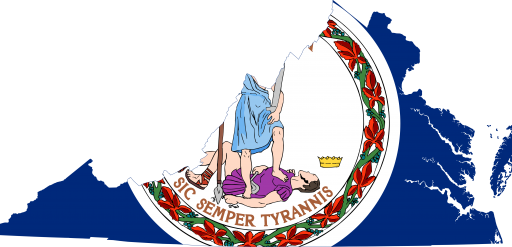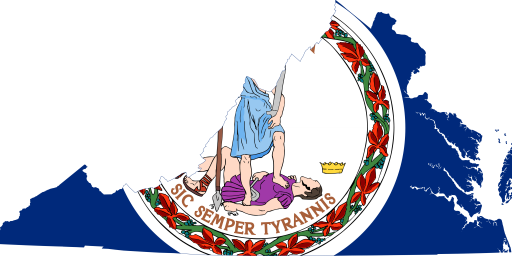Virginia Governor’s Race Remains Essentially Tied
With Chris Christie running away with the race in New Jersey, there is going to be a lot of media attention paid to the other Gubernatorial race on the ballot in November, the race in Virginia between Ken Cuccinelli and Terry McAuliffe. So far, that race is essentially tied:
Virginia State Attorney General Ken Cuccinelli is viewed as having better experience while voters see Terry McAuliffe as slightly less ideological, but neither is well-known to voters who are divided on who should be the next governor, with 40 percent for Republican Cuccinelli and 38 percent for Democrat McAuliffe according to a Quinnipiac University poll released today.
The decision by Lt. Gov. Bill Bolling that he would not run for governor as an independent has had no effect on the Cuccinelli-McAuliffe matchup as the current dead heat is the same as two previous surveys this year, the independent Quinnipiac (KWIN-uh-pe-ack) University poll finds.
For 37 percent of Virginia voters, the economy is the most important issue in the governor’s race, while 19 percent list education, 15 percent cite taxes and 12 percent list the state budget.
“Neither candidate for governor is that well known to voters although Cuccinelli has a small edge in that department,” said Peter Brown, assistant director of the Quinnipiac University Polling Institute. “Because of their relatively low profiles at this point, the horse race numbers pretty much reflect a generic Democratic-Republican race.
“The Cuccinelli-McAuliffe race features the kind of gender gap we are seeing in many races. The Democrat wins women 43 – 33 percent, while the Republican carries men 49 – 33 percent.
Voters say 44 – 22 percent that Cuccinelli, the attorney general and former state legislator, has the right kind of experience to be governor. Businessman McAuliffe, who has never held public office although he was Democratic National Chairman, has the right experience voters say 28 – 23 percent.
Virginia voters still know little about either candidate. Cuccinelli gets a 30 – 24 percent favorability rating, with 44 percent who don’t know enough about him to form an opinion. McAuliffe has a 20 – 16 percent favorability, with 63 percent who don’t know enough about him.
Cuccinelli’s political philosophy is “about right,” 32 percent of Virginia voters say, while 29 percent say he is too conservative and 5 percent say he is too liberal, while 33 percent of voters do not have an opinion.
McAuliffe’s philosophy is “about right,” 29 percent of voters say, while 21 percent say he is too liberal and 4 percent say he is too conservative, while 45 percent of voters do not have an opinion.
“At this point in the race, the number of voters who see Cuccinelli as ‘too conservative’ is higher than the number who sees McAuliffe as ‘too liberal.’ But the general public does not see the GOP candidate as a far right kind of guy as some both inside and outside the Republican Party have suggested. It would not be surprising to see McAuliffe try to pin the ideologue label on Cuccinelli but as of now the label does not stick,” said Brown.
Given the high number of undecideds here, and the fact that voters know little about either candidate, it’s hard to say that this means anything at this point. It will be months before either candidate even starts to engage with the voters so this is unlikely to change. Quite obviously, the strategy for McAuliffe will be to try to paint Cucinelli as too far to the right. Of course, that’s the same thing that Virginia Democrats tried to do four years ago with Bob McDonnell and it failed miserably. This difference this time, I’d suggest, is that Cuccinelli has a much deeper record of statements made while he’s been in office that his opponent will be able to use against him.





Bob McDonell won because:
1. He had a good head of hair and a nice smile.
2. He had a photogenic family
3. He hid his conservatism well-which allowed folks to vote for him hoping that he wouldn’t actually screw gays, minorities, and women while buying his anti-mathematical “low taxes” message. No one is going to give Cuchinelli the benefit of the doubt this time
Cuchinelli can’t do the “stealth conservative” mode, so once people start focusing on the race, the Democrats will have plenty of opportunity to define him.
More to the point, the Dems of 2009 were different. In the afterglow of 2008, they thought the war was won and so Virginia Democrats were busy squabbling about whether their candidates were “liberal” enough. Also, people didn’t “like” Creigh Deeds because, frankly , he was about as charismatic as a box of rocks.
The Democrats are united now , they’re not concerned about “likability” or “liberalness” and pretty much all hands will on deck” for McAuliffe.
At this point, we can’t say how things will go. But 2013 will be a lot different than 2009.
@stonetools:
The problem Virginia Democrats have is that their candidate is a carpetbagger who flirted with running in Florida and New York before settling on Virginia,and who was rejected by the party in the 2009 primary.
By the end of this race, we’re going to end up with a situation where the voters hate both the candidates. The only question will be who the hate the least.
@Doug Mataconis:
Dunno if he’s a carpetbagger( what does that even mean in today’s highly mobile society anyway? ). I know he doesn’t hate women, gays, and science. And he’s a big Friend of Bill. We ‘ll be seeing a lot of Billary in VA come the fall. As far being rejected by the Virginia Democratic Party in 2009, one Ronald Wilson Reagan was rejected in the primaries by his party in 1976. That turned out well for him and the Republicans later.
Wouldn’t it be cool if either party had nominated someone that people might have wanted as their governor?
I know, my lofty desires sometimes get the better of me.